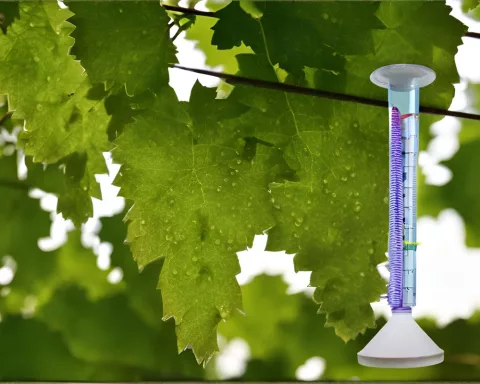South Africa’s recent storm, which caused widespread damage and fatalities in the Western Cape, raises questions about the impact of climate change on severe weather events. Cut-off low-pressure systems, which can cause flooding and other severe weather, are a significant feature of South Africa’s climatic systems. While establishing a direct connection between a single weather event and climate change is challenging, climate change is predicted to increase the frequency and intensity of extreme weather events across Africa, making it crucial to prepare for their potential destruction.
Unraveling the Connection Between Climate Change and Cut-off Lows
South Africa’s Western Cape, known for its breathtaking landscapes and rich cultural history, recently experienced a brutal display of nature’s fury during the Heritage Day long weekend. A cut-off low-pressure system unleashed torrential rain and violent winds, resulting in over ten fatalities, isolating towns and farms, and forcing families to evacuate their homes. As major roads became impassable due to collapsed bridges, many questioned if anthropogenic climate change played a role in worsening this catastrophic storm.
‘Cut-off low’ might seem like an unfamiliar term, but these meteorological events significantly affect South Africa’s climatic systems. Cut-off low-pressure systems, detached from the primary atmospheric circulation, tend to persist in one area for extended periods, often causing severe weather and flooding. According to a University of Pretoria article, cut-off lows considerably contribute to South Africa’s average annual rainfall. In the Western Cape, these systems typically occur ten times annually, primarily in autumn and spring, filling dams in preparation for the region’s lengthy, arid summers.
It is important to recognize that cut-off lows do not consistently result in widespread damage like the recent Western Cape storm. The severity of their consequences varies, and establishing a connection between a single weather event and climate change requires extensive data collection over many years. Scholarly publications, including the Intergovernmental Panel on Climate Change (IPCC) Annual Reports, and interviews with university professors, collectively acknowledge that climate change both amplifies and raises the frequency of extreme events.
The Role of Attribution Studies in Climate Change
Attribution studies, an emerging discipline, strive to associate specific weather events with climate change. These investigations use climate models under pre-industrial atmospheric conditions to assess the probability of a particular event occurring without climate change’s influence. Professor Jennifer Fitchett at the University of the Witwatersrand cautions against impulsively ascribing isolated incidents to climate change, underlining the necessity for sufficient data and modeling expertise. Until such research is conducted, it is virtually impossible to confidently claim that a specific event resulted from climate change.
While determining whether the recent Western Cape floods directly resulted from climate change could take months or even years, the IPCC’s latest Annual Report (AR6) confirms that human-induced global warming will enhance the likelihood and intensity of extreme events. The AR6 report predicts an increase in the frequency and strength of storms across Africa. Furthermore, the Western Cape Government recognizes the province as one of the most susceptible regions in South Africa to climate change.
The Implications of Climate Change for South Africa’s Weather Patterns
Climate change renders weather patterns more erratic, especially in coastal provinces like the Western Cape. Here, rising sea levels combined with heavy rainfall events increase the chances of storm surges and coastal flooding. Additionally, factors such as elevated sea surface temperatures and increased atmospheric moisture contribute to the development of cut-off low-pressure systems, like the one responsible for the recent storm.
As climate change continues to affect weather patterns globally, South Africa must prepare for the intensification of extreme events and the potential destruction they may cause. While linking individual weather events to climate change remains a complicated and subtle process, the overall impact of human-induced global warming is both indisputable and far-reaching. As South Africa’s Western Cape recovers from the recent storm, it is crucial to acknowledge and address the role of climate change in shaping the region’s future weather patterns and the potential repercussions they may bring.
What are cut-off low-pressure systems, and how do they affect South Africa’s climatic systems?
Cut-off low-pressure systems are meteorological events that detach from the primary atmospheric circulation and persist in one area for extended periods, causing severe weather and flooding. In South Africa, they significantly contribute to the country’s average annual rainfall, occurring primarily in autumn and spring and filling dams in preparation for the region’s lengthy, arid summers.
Did climate change play a role in worsening the recent Western Cape storm?
It is challenging to establish a direct connection between a single weather event and climate change. However, climate change is predicted to increase the frequency and intensity of extreme weather events across Africa, making it crucial to prepare for their potential destruction.
What are attribution studies, and how do they relate to climate change?
Attribution studies use climate models under pre-industrial atmospheric conditions to assess the probability of a particular event occurring without climate change’s influence. These investigations strive to associate specific weather events with climate change.
Can isolated incidents be ascribed to climate change without sufficient data and modeling expertise?
Professor Jennifer Fitchett at the University of the Witwatersrand cautions against impulsively ascribing isolated incidents to climate change, underlining the necessity for sufficient data and modeling expertise. Until such research is conducted, it is virtually impossible to confidently claim that a specific event resulted from climate change.
How will climate change affect South Africa’s weather patterns?
Climate change renders weather patterns more erratic, especially in coastal provinces like the Western Cape. Rising sea levels combined with heavy rainfall events increase the chances of storm surges and coastal flooding. Additionally, factors such as elevated sea surface temperatures and increased atmospheric moisture contribute to the development of cut-off low-pressure systems, like the recent storm in the Western Cape.
What does the IPCC’s latest Annual Report (AR6) predict about the frequency and strength of storms across Africa?
The AR6 report predicts an increase in the frequency and strength of storms across Africa due to human-induced global warming.
Is the Western Cape region susceptible to climate change?
Yes, the Western Cape Government recognizes the province as one of the most susceptible regions in South Africa to climate change.
What should South Africa do to prepare for the intensification of extreme weather events?
As climate change continues to affect weather patterns globally, South Africa must prepare for the intensification of extreme events and the potential destruction they may cause. This includes implementing effective disaster response plans, improving infrastructure, and taking measures to mitigate the effects of climate change.












